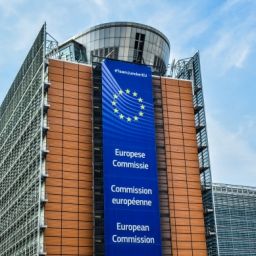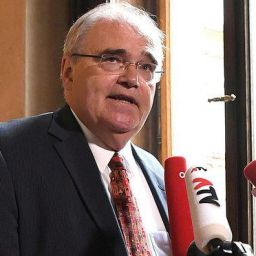Sale of EU citizenship undermines states’ mutual trust

The European Commission is mulling opening legal proceedings against Malta over its controversial ‘golden passports’ scheme, Times of Malta can reveal.
The Commission is considering issuing what is known as a letter of formal notice, the first step in infringement procedures against Malta, warning that the passports scheme violated EU rules.
It is of the opinion that by selling EU passports, Malta departs from the common basic understanding that nationality is the expression of a special relationship of allegiance, solidarity and a genuine link between the state and its people.
Sources said legal analysis by the commission has concluded that the sale of EU citizenship undermines member states’ mutual trust in each other’s decisions to grant citizenship.
European Commission President Ursula Von der Leyen set her sights on passports sales during her state of the European Union speech in September, insisting “European values are not for sale”.
Also known as the Individual Investor Programme, the scheme was mired in controversy from the very beginning. The IIP scheme attracted plenty of negative press and criticism from the European Commission, which has repeatedly said that it dislikes such schemes.
Last April, EU Justice Commissioner Didier Reynders said that the Commission had written to Malta, Bulgaria and Cyprus to urge them to “phase out” their citizenship schemes. But Reynders acknowledged that the decision to do so rested with member states and said that the Commission was in talks with them to find “possible evolutions” of the schemes.
Malta’s scheme, which generated more than €800 million for the government between its launch in 2014 and last July, has been mired in controversy for several years.
Last year, the European Commission identified golden passport schemes as raising the risk of possible infiltration of non-EU organised crime groups, as well as money laundering, corruption and tax evasion possibilities.
Warned golden passports scheme violated EU rules
In September, Times of Malta reported how a rogue state is believed to have used Malta’s passport scheme to sneak at least one person in and out of Europe.
The “person of interest” is understood to have made it through Malta’s cash-for-passports’ initial vetting process by posing as a citizen of another country prompting concerns that he may have been a spy or a state asset working for a dictatorial regime.
His Maltese passport and that of two dependants who travelled to Malta with him were all revoked earlier this year.
Three years ago, a magisterial inquiry was opened into a leaked FIAU report detailing suspicions that the former prime minister’s chief of staff Keith Schembri took a €100,000 kickback on three passport sales. Schembri and his auditors, Brian Tonna, Karl Cini and Manuel Castagna, are currently on police bail as the police continue investigations into the kickback allegations.
These four, and scores of other people and companies, had their assets frozen by the court as after a court issued an attachment order to that effect. The order listed 91 people and companies, including Schembri, Tonna, Cini and Castagna.
All four were arrested following the conclusion of an inquiry into financial crimes and released after some 20 hours under arrest. The government recently announced an overhaul of Malta’s IIP scheme.
The new regulations, which came into force in September, remove the possibility for individuals to apply for Maltese citizenship without first becoming residents.
Anyone interested in getting a Maltese passport will have to live in Malta for a year before being allowed to apply for citizenship.
Under the new scheme, applicants who invest €750,000, up from €650,000 under the existing rules, will be able to apply for citizenship after living in Malta for one year.
Applicants who invest €600,000 will have to spend three years in Malta before applying for a passport.
The minimum value of the property purchased will double to €700,000 from €350,000. A €10,000 philanthropic donation will be mandatory. The plan was for up to 400 citizenship applications to be approved per year and the new scheme was capped at a maximum of 1,500 successful applicants.
The Individual Investor Programme was managed by Henley & Partners, which got commission for every successful application. It has emerged that from its launch in 2014 to 2017, the concessionaire has raked in more than €19 million from this programme.
In the new revision, Henley and Partners will no longer serve as Malta’s cash-for-passports programme concessionaire.
Prime Minister Robert Abela had said in January he was keen to retain the scheme and has subsequently argued that revenue from it is key to countries following the coronavirus-caused economic slowdown.




